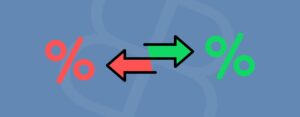Bank Of England Base Rate Dropped – What Does This Mean for My Mortgage?

A change in interest rates can have a real impact on your monthly mortgage payments – particularly if you’re currently on a variable or tracker mortgage. With the recent Bank of England base rate drop, many mortgage owners are asking what this means for them.
So, how exactly does a base rate change affect your mortgage?
Whether you have a tracker, fixed, or standard variable rate mortgage, understanding how the Bank of England base rate affects mortgages can help you plan your finances for the future and potentially secure a better deal by remortgaging.
In this article, we explore how the Bank of England base rate drop can affect your mortgage, the potential for savings, and best steps moving forward. Let’s begin.
- What is the Bank of England Base Rate?
- How Will the Base Rate Cut Affect Tracker Mortgages?
- Will Standard Variable Rate Mortgages Go Down After the Base Rate Cut?
- Does the Base Rate Cut Affect Fixed-Rate Mortgages?
- Do Mortgage Rates Change Automatically When The Bank of England Base Rate Changes?
- How Do Mortgage Lenders Determine Rates?
- Should I Remortgage Now That the Base Rate Has Fallen?
- Will the Bank of England Cut Rates Again in the Future?
- Frequently Asked Questions
- How Do Mortgage Brokers Notify Clients When Better Rates Become Available?
What is the Bank of England Base Rate?
The Bank of England Base rate is the official interest rate that is set by the Bank of England. This base rate serves as a benchmark for borrowing and saving across the UK, influencing the interest rates lenders charge on mortgages, loans, and other forms of credit.
In short: the Bank of England base rate will directly affect how much it costs to borrow money. When the rate rises, borrowing becomes more expensive. Comparatively, when the base rate falls, loans and mortgages will generally become cheaper.
Staying up-to-date on the Bank of England Base Rate can help provide you with insight into the current market, helping you anticipate possible changes to your mortgage, or opportunities to remortgage.
At Boon Brokers, we believe that it’s crucial you understand all of your options. That’s why our dedicated mortgage advisers take the time during your consultation to explain exactly how changes to the Bank of England base rate could impact your mortgage. Whether you’re deciding on a tracker, variable, or fixed deal, we’ll help you understand each of your options and match you with the mortgage that best suits your needs.
See What Our Clients Have To Say...
How Will the Base Rate Cut Affect Tracker Mortgages?
Tracker mortgages are directly linked to the Bank of England base rate. This means that any change in the base rate will typically have an impact on your mortgage interest rate and repayments.
In the case that the Bank of England cuts their base rate, homeowners that are on tracker mortgages will generally see their monthly repayments decrease. This drop in repayments is to reflect the new standard lower cost of borrowing.
How Do Tracker Mortgages Work?
A tracker mortgage – as the name suggests – will track the Bank of England base rate. With a tracker mortgage, you will typically pay the Bank of England’s base rate, plus a fixed percentage that will be set by your chosen lender.
Tracker mortgages are one of the quickest ways for borrowers to benefit from interest rate reductions. However, should the rates rise, then your mortgage interest rate will equally rise.
Common Scenario
- Problem: Tom has a tracker mortgage set at the Bank of England base rate +1%. With the base rate at 4.25%, his interest rate was 5.25%, stretching his monthly budget and making it harder to manage expenses.
- Solution: When the base rate dropped to 4.00%, Tom’s rate automatically fell to 5.00%, giving him immediate relief without needing to renegotiate his mortgage.
It’s important to note that not all tracker mortgages adjust instantly. Some lenders may take a few days to apply their changes, and some lenders will have stipulations on minimum or maximum rate limits.
At Boon Brokers, we provide expert guidance on all mortgage types, including tracker, fixed, and variable deals. As a whole-of-market brokerage, we have access to the whole market of mortgage products. Our dedicated adviser will walk you through all of your options, ensuring that we find you the best lender and mortgage for your circumstances.
Will Standard Variable Rate Mortgages Go Down After the Base Rate Cut?
Standard variable rate mortgages are set by lenders rather than the Bank of England. For this reason, when the Bank of England base rate drops, there is no guarantee that this will automatically reflect a reduction in your mortgage interest or payments.
What Is a Standard Variable Rate?
A Standard Variable Rate (SVR) is the lender’s rate that will apply once a fixed or tracker deal ends. While the Bank of England’s base rate can influence lenders SVR, it is important to note that the SVR is completely at the discretion of the lender.
As such, it is almost always best practice for those approaching the end of their mortgage term on a fixed-rate or tracker mortgage to remortgage into a new deal and avoid the lender’s SVR.
Common Scenario
- Problem: Steve is currently on his lender’s standard variable rate (SVR) mortgage. The recent Bank of England base rate drop did not influence his lender’s SVR, leaving him with the same monthly costs.
- Solution: By working with a whole-of-market broker, Steve remortgaged to a new fixed-rate deal, securing a lower interest rate and reducing his monthly payments, helping him save money and gain more financial security.
Ultimately, SVRs can be less predictable than tracker mortgages. For this reason, keeping an eye on your chosen lenders updates and consulting with a whole-of-market broker – like Boon Brokers – can help you ensure that you can take advantage of potential reductions or opportunities to remortgage into a better mortgage deal.
Fee-free expert advice to find your perfect mortgage.
Book a Free CallDoes the Base Rate Cut Affect Fixed-Rate Mortgages?
No, a cut in the base rate will not affect fixed-rate mortgage agreements. This is because fixed-rate mortgages lock an agreed upon interest rate for a set period of time. No change in the Bank of England base rate will affect your monthly payments in a fixed-rate mortgage agreement.
With that said, for those on a fixed-rate mortgage that is coming to an end, a base rate cut could provide an opportunity to remortgage into a better fixed-rate deal. Lenders may have new mortgage products that offer lower rates, reflecting the base rate cut.
Common Scenario
- Problem: Emma has a £180,000 fixed-rate mortgage at 4.5%. She wanted to benefit from the recent Bank of England base rate drop immediately, but her fixed-rate mortgage was not affected by the recent base rate cut.
- Solution: While her fixed-rate remains fixed for a further 3 months, she contacted a whole-of-market broker to review her remortgaging options once her deal ends. She was able to take advantage of the forecasted lower rates, saving on future repayments with a new fixed-rate deal.
Understanding fixed-rate mortgages helps homeowners plan ahead and avoid surprises when the base rate changes.
At Boon Brokers, we stay up-to-date on all market developments and changes to the Bank of England base rate. If your mortgage is affected or there’s an opportunity to secure a lower rate, your dedicated adviser will contact you directly, ensuring you never miss a chance to save and secure the best deals.
Do Mortgage Rates Change Automatically When The Bank of England Base Rate Changes?
Whether the Bank of England base rate changes will affect your mortgage will depend on the type of mortgage agreement that you have. Most mortgage rates will not change when the Bank of England base rate for mortgages is adjusted.
If you’re currently on a standard variable or tracker mortgage, your lender may adjust your payments to reflect the new base rate. However, these changes are not always instantaneous and can depend on your chosen lender’s processes and timing.
In the UK, fixed-rate mortgages are generally the most common type of mortgage. This is because borrowers can secure a fixed interest rate that helps keep a consistent repayment amount for the agreed term period. However, because fixed-interest rates are set for a specified term, changes in the Bank of England base rate do not affect your current repayments.
The only time a base rate change may affect those on a fixed-rate mortgage is when your fixed term is ending, and you’re preparing to remortgage into a new fixed-rate deal.
In fact, only borrowers who are currently on a tracker mortgage or some variable-rate deals will likely see any influence on their current interest rates. This is because tracker mortgages move directly in line with the base rate.
How Do Mortgage Lenders Determine Rates?
Lenders don’t base their independent mortgage rates solely on the current Bank of England base rate. Instead, they take into consideration both swap rates and mortgage rates, which are longer-term forecasts that take a detailed look at anticipated changes in the broader economy.
Generally speaking, lenders are ahead of the curve when it comes to rate changes, and in many cases, they will have already factored in base rate expectations. This means that any change in the base rate may not directly result in immediate adjustments to mortgage rates.
What Are Swap Rates?
Swap rates are not rates in which consumers/borrowers will borrow money at. Instead, swap rates refers to the interest that banks will be charged for borrowing and are fundamentally used by financial institutions to manage interest rate risk.
Most importantly, they act as a forecast indicator and are effectively long-term interest rate agreements that help lenders predict costs and set mortgage rates. By using swap rates, lenders can offer more stable products while managing the risk of base rate movements.
Should I Remortgage Now That the Base Rate Has Fallen?
With the recent Bank of England base rate drop, you’re likely asking: “Is it the right time to remortgage?”
The answer will wholly depend on your current mortgage deal, remaining term, and financial goals.
If you’re coming to the end of your tracker or fixed-rate term, then remortgaging can often help reduce your monthly repayments, lock in a competitive rate, or allow you to switch to a mortgage type better suited to your needs.
If you’re considering remortgaging after the recent Bank of England base rate drop, check out the table below. We’ve created an overview of how remortgaging could benefit you on your monthly repayments:
| Benefit | How It Works | Example Impact |
| Lower Monthly Repayments | Switching to a tracker or fixed-rate remortgage that reflects the lower base rate can reduce monthly costs | £200,000 tracker mortgage drops from 4.5% to 4.0%, lowering repayments from £1,012 to £967 per month, saving £45 |
| Lock in a Competitive Fixed Rate | Moving from an SVR or tracker mortgage to a fixed-rate deal secures predictable repayments at a lower rate | £180,000 mortgage switches from SVR 5% to fixed 3.75%, lowering repayments from £1,050 to £921, saving £129 |
| Switch to a More Suitable Mortgage | Remortgaging lets you choose a deal that better fits your goals, such as a 2 or 5 year fixed rate before returning to SVR | 25-year SVR mortgage switches to 5-year fixed at 3.5%, reducing repayments from £1,050 to £940 during the fixed period, saving £110 |
By working with Boon Brokers, we can help you determine whether remortgaging now is the most beneficial move, while ensuring any fees or penalties are considered. Our fee-free advisers explore all mortgage options and the best deals on the market today, identifying rates that reflect the latest Bank of England base rate changes and are tailored to your individual circumstances.
Will the Bank of England Cut Rates Again in the Future?
Predicting the next Bank of England rate cut is a very complex and challenging task. Economists and market analysts create forecasts that are based on both current and predicted inflation, economic growth, and other financial indicators.
Ultimately, while there may be speculation about future cuts or rises, for borrowers, it is most beneficial to focus on the current rates and make informed decisions based on the economy of today. This ensures that you can know exactly how to manage your current mortgage rather than relying on the whim of predictions.
Frequently Asked Questions
If I Have a Tracker Mortgage, How Soon After a Bank of England Base Rate Change Will My Interest Rate and Payments Change?
Generally, the interest rates on tracker mortgages will usually adjust within a few days or weeks, but this is wholly dependent on your chosen lender’s processing times.
Some mortgages will also have a minimum or maximum limit that can affect the change. Being aware of your lender’s terms ensures you can plan your finances effectively when the base rate changes.
Can a Mortgage Broker Predict the Bank of England Base Rate Over the Next Five Years?
Unfortunately, no broker can predict the future – even when it comes to interest rates. However, a mortgage broker will have a good understanding of current market analysis, economic indicators, and lender trends to help advise on likely scenarios and suggest strategies that align with your long-term financial goals.
As such, working with a trusted whole-of-market mortgage broker will help you make the most informed mortgage decisions.
Why Is a Lower Interest Rate Usually Better for a Mortgage?
Generally speaking, lower interest rates will reduce the cost of borrowing, and will lower the monthly repayments. Over the lifetime of your mortgage, this can save a significant amount in interest payments.
With that said, choosing the lowest mortgage rate is not always the best option. It’s important to consider the real costs over the whole term of your mortgage. At Boon Brokers, we can help you calculate the real overall cost of your mortgage and help advise you on the best steps to secure the best deal that matches your needs.
Why Don’t Mortgage Rates Drop Immediately After a Bank of England Base Rate Cut?
Lenders do not base their mortgage rates solely on the Bank of England base rate. They also consider broader market conditions and long-term forecasts. As a result, any rate adjustments can take time, and homeowners should monitor lender announcements to identify opportunities for potential savings.
How Do Mortgage Brokers Notify Clients When Better Rates Become Available?
Trying to keep on top of all the latest mortgage deals, base rate cuts, and opportunities to secure better mortgage deals can be time-consuming – especially when interest rates are constantly fluctuating.
Don’t worry – we’re here to help you.
At Boon Brokers, we have whole-of-market access allowing us to identify and compare mortgage deals from the whole mortgage market. Our dedicated experts always have a finger on the pulse of the mortgage market, helping you secure the best mortgages that match your needs and notifying you whenever a better deal becomes available.
When you work with Boon Brokers, you’re assigned a dedicated mortgage adviser who will proactively get in touch whenever a more competitive rate is available. Whether it’s a tracker, fixed, or standard variable rate mortgage, we ensure you’re informed so you can make timely decisions.
We’re proud to be an established and regulated mortgage brokerage, providing our service completely fee-free mortgage brokerage – so you can be confident that you’re receiving unbiased, expert guidance that is tailored to your needs.
Contact Boon Brokers today to speak with a dedicated mortgage adviser and secure the mortgage deal that matches your needs.
Lucinda RobinsonCeMAP, CeRER
Lucinda Robinson is an established and fully qualified mortgage and protection adviser with specialist expertise in re-mortgage strategy and equity release. She holds both CeMAP and CeRER certifications and has achieved numerous Distinction and Merit grades during her training.Related Articles
- How Does Being Self Employed Affect A Joint Mortgage?
- Fixed Rate Mortgage
- Advantages Of A Mortgage Broker
- What Is A Shared Equity Mortgage?
- The Mortgage Underwriting Process
- How To Get A Mortgage With A New Job
- Can I Overpay My Mortgage?
- How To Improve Your Chances Of Getting A Mortgage
- What Is Checkmyfile?
- Choosing A Mortgage Broker
- Can I Get a Mortgage on Maternity Leave?








